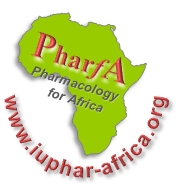"Proper infection control practices and antimicrobial stewardship will be important to address this emerging threat" is the conclusion of a new publication from Sub-Saharan Africa on trends and reasons why resistance to antibiotics is becoming an increasing international problem.
The study, just published in the latest issue of the American Journal of Tropical Medicine and Hygiene, looked at data collected over a 5 year period on sensitivity of bacterial cultures to a wide range of WHO essential list as well as newer antibiotic medicines.
The data were collected in Kigali, Rwanda, at King Faisal Hospital, a major teaching and referral hospital for patients from throughout
 Rwanda and from neighbouring countries.
Rwanda and from neighbouring countries.
The research team comprised international researchers from the USA (Yale AIDS Programme and the Department of Public Health, Philadelphia), the UK (Fellowship of Postgraduate Medicine, London) and SMBT Institute of Medical Science and Research Center in Nashik, India, in collaboration with clinicians from the King Faisal Hospital in Kigali, Rwanda.
"Differences in antimicrobial susceptibility between the first and fifth year of the study for each bacterial species was assessed using 2 test. Of 5,296 isolates collected, 46.7% were Escherichia coli, 18.4% were Klebsiella spp., 5.9% were Acinetobacter spp., 7.1% were Pseudomonas spp.,
11.7% were Staphylococcus aureus, and 10.3% were Enterococcus spp. Colistin and imipenem had greatest activity against gram-negative bacteria.
Acinetobacter spp. showed the greatest resistance profile to antimicrobials tested, relative to other gram-negative bacteria. Vancomycin retained excellent activity against S. aureus and Enterococcus species (average susceptibility was 100% and 99.4%, respectively).
Trend analysis determined that resistance to imipenem increased significantly among Klebsiella, E. coli, Pseudomonas, and Acinetobacter isolates; there was also rising resistance to colistin among E. coli and Pseudomonas species.
Only E. coli demonstrated increased resistance to gentamicin. For gram-positive pathogens, vancomycin susceptibility increased over time for Enterococcus species, but was unchanged for S. aureus. Our data suggest that resistance to imipenem and colistin are rising among gram-negative bacteria in Rwanda."
Read the full article
The study, just published in the latest issue of the American Journal of Tropical Medicine and Hygiene, looked at data collected over a 5 year period on sensitivity of bacterial cultures to a wide range of WHO essential list as well as newer antibiotic medicines.
The data were collected in Kigali, Rwanda, at King Faisal Hospital, a major teaching and referral hospital for patients from throughout
 Rwanda and from neighbouring countries.
Rwanda and from neighbouring countries.The research team comprised international researchers from the USA (Yale AIDS Programme and the Department of Public Health, Philadelphia), the UK (Fellowship of Postgraduate Medicine, London) and SMBT Institute of Medical Science and Research Center in Nashik, India, in collaboration with clinicians from the King Faisal Hospital in Kigali, Rwanda.
"Differences in antimicrobial susceptibility between the first and fifth year of the study for each bacterial species was assessed using 2 test. Of 5,296 isolates collected, 46.7% were Escherichia coli, 18.4% were Klebsiella spp., 5.9% were Acinetobacter spp., 7.1% were Pseudomonas spp.,
11.7% were Staphylococcus aureus, and 10.3% were Enterococcus spp. Colistin and imipenem had greatest activity against gram-negative bacteria.
Acinetobacter spp. showed the greatest resistance profile to antimicrobials tested, relative to other gram-negative bacteria. Vancomycin retained excellent activity against S. aureus and Enterococcus species (average susceptibility was 100% and 99.4%, respectively).
Trend analysis determined that resistance to imipenem increased significantly among Klebsiella, E. coli, Pseudomonas, and Acinetobacter isolates; there was also rising resistance to colistin among E. coli and Pseudomonas species.
Only E. coli demonstrated increased resistance to gentamicin. For gram-positive pathogens, vancomycin susceptibility increased over time for Enterococcus species, but was unchanged for S. aureus. Our data suggest that resistance to imipenem and colistin are rising among gram-negative bacteria in Rwanda."
Read the full article




.PNG)

.PNG)
